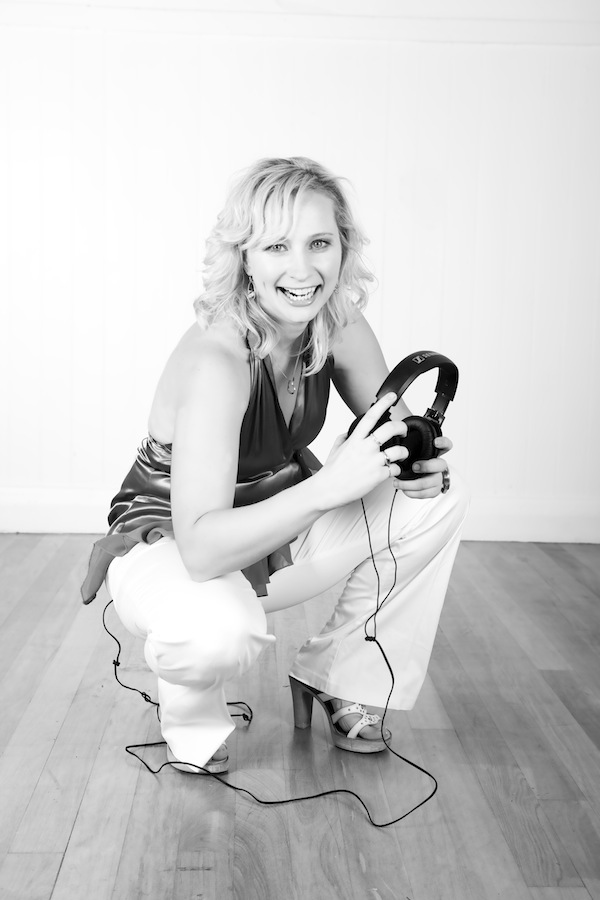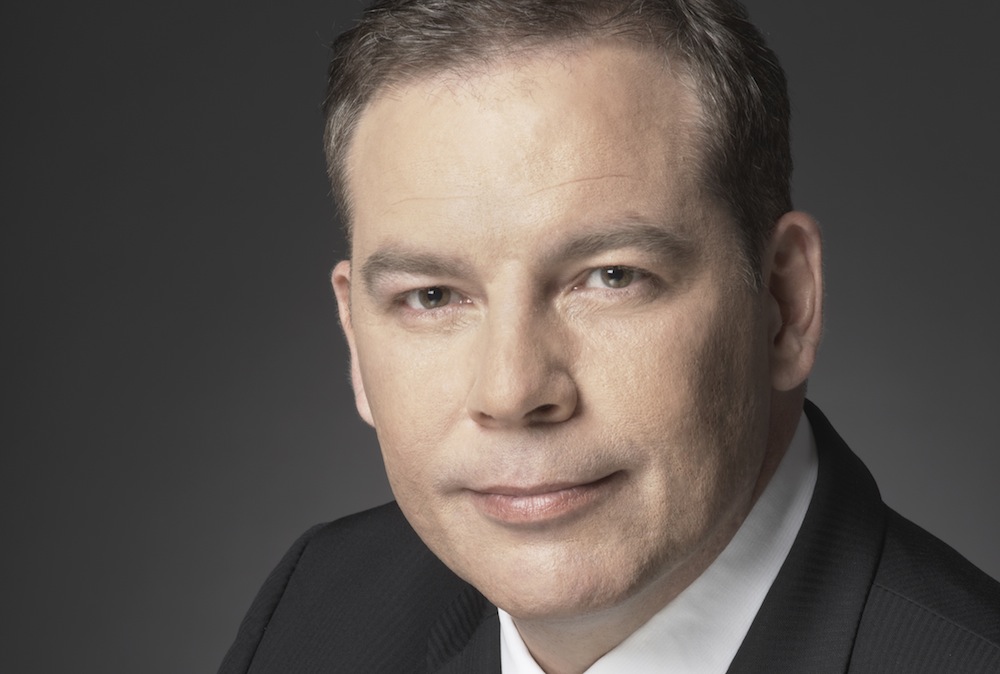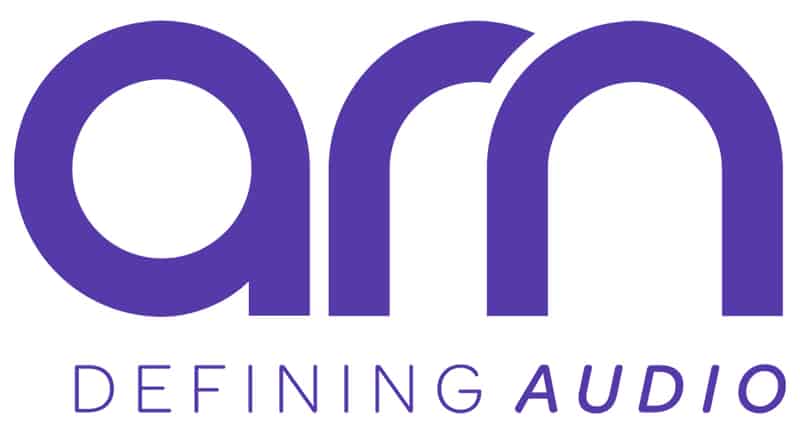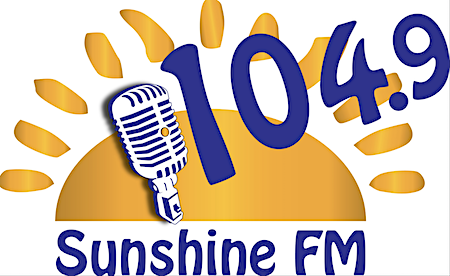The Brutal Truth – Part 4

Who is the Audience ?
(And why can't I hear them laughing anymore ?)
“There is nothing quite so crushing as a silent audience”
“If only half the people in a comedy club think you are funny – a hundred people laugh.
If only half the people in a radio studio think you are funny – one person laughs”
“It's the neediest profession in the world …
The only justification you have for your job is other people's reactions”
“With stand-up … if something doesn't work, you know. Trust me, you know”
Frank insights from the most stellar line-up of on-air talent ever assembled in one place
without mediation or the need to negotiate the release of hostages:
Tony Martin Wendy Harmer  Marty Sheargold
Marty Sheargold  Tom Gleeson
Tom Gleeson  Mick Molloy
Mick Molloy
Tom Ballard  Amanda Keller
Amanda Keller  Rosso
Rosso  Mikey Robins
Mikey Robins  Matt Tilley
Matt Tilley  Chrissie Swan
Chrissie Swan
Lehmo  Akmal Saleh
Akmal Saleh  Tim Smith
Tim Smith  Jo Stanley
Jo Stanley  James O'Loghlin
James O'Loghlin  Craig Annis
Craig Annis
Dave O’Neil  Tim Blackwell
Tim Blackwell  Robin Bailey
Robin Bailey  Simon Kennedy
Simon Kennedy  Stav Davidson
Stav Davidson
Dave Thornton  Julian Schiller
Julian Schiller  Lisa Fernandez
Lisa Fernandez  Jamie Row
Jamie Row  Ciel
Ciel  Joel Creasey
Joel Creasey
Tommy Little  Natalie Locke
Natalie Locke  Steve Philp
Steve Philp  Paul Hogan
Paul Hogan  Adam Richard
Adam Richard
Before we get stuck into the Brutal Truth about Program Directors, air-checks, ratings and other forms of extreme heckling – and the emotional rollercoaster ride talent gets on when they move into radio and say “Goodbye autonomy, Hello c-words!”* … today we’re digging deep into “Who is the Audience (and why can’t I hear them laughing anymore?)”.
* Collaboration, Corporation, amongst others
In Part 2 we discussed the differences between the audiences of the two mediums of radio and stand-up comedy. Here, our panel digs deep into the how this impacts the performer: how the differences in audiences and environments force them to adjust and compensate, how they’ve come to realise the roles are fundamentally different, and Tim Smith talks about the beach.
“The main difference between the two is the immediacy of the feedback.
With stand up you don't need to wait for the ratings to come out to find out how you went.
If something doesn't work, you know.
Trust me, you know."
Mick Molloy
“There is nothing quite so crushing as a silent audience”
Natalie Locke
“It's the neediest profession in the world …
The only justification you have for your job is other people's reactions”
Mikey Robins
Let’s start by getting the fairly obvious major difference out of the way, as it permeates through everything that follows …
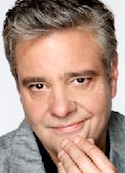 Mikey Robins |
The major difference is when you do stand-up you have an audience. (I know it sounds obvious). And you hear them laugh. |
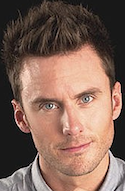 Dave Thornton Dave Thornton |
… yes, not having a live audience to work off is a factor. |
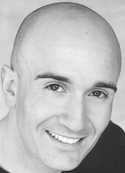 Simon Kennedy Simon Kennedy |
I started doing stand-up because radio didn't give me the immediate feedback that humour requires, a laugh from the audience. |
 Paul Hogan Paul Hogan |
(In radio) you can't see them. If only half the people in a comedy club think you are funny – a hundred people laugh. If only half the people in a radio studio think you are funny – one person laughs. |
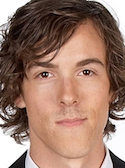 Tim Blackwell Tim Blackwell |
Hughesy (Dave Hughes) was the first comedian I had ever worked with on air and he told me as anchor just to be a good audience. They're used to feeding off the energy of the crowd in a theatre – usually once the audience were a few Crownies in! However, at 6.06 on a Monday morning with only me and Kate Langbroek to look at … we knew we had to give him the reactions he needed. Luckily it wasn't too hard to laugh at him every day! |
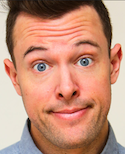 Craig Annis Craig Annis |
The biggest difference is – you can't see your audience on air. There's pros and cons to that: the con, you can't monitor what their laughing at; the pro: you don't have to smell people in the Western suburbs! |
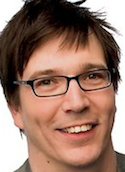 Stav Davidson Stav Davidson |
Two things occurred to me on making the transition from stand-up to radio. The first was adjusting to having no immediate reaction from your audience. |
This lack of immediate feedback can have a profound impact on the on-air talent. Stand-up comedians are used to receiving instant and very real, irrefutable feedback – audience laughter. You’re either funny. Or you’re not. Instantly.
|
|
A stand-up audience is laden with expectation. And, more importantly, you can see them. When they're unimpressed, you know about it instantly. When they're impressed, you know as well. |
|
|
The process of receiving feedback is definitely different … Onstage, you know exactly what people think of you and your little routines; they let you know pretty jolly quick. |
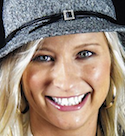 Sarah Levett Sarah Levett |
With stand-up, the audience gives you instant feedback, and there is nothing like the adrenalin burst you get when you can hear the buzz of a live crowd. In radio, it is more delayed, and you rely more on the team in the studio for the immediate reaction. |
The significance of this difference can be easy for those in management to either brush off – or simply not be aware of (virtually none have ever done stand-up). But for the on-air talent, the difference can’t be overstated as, once thrust into performing in a radio studio, they’re suddenly trying to gauge audience feedback in a vacuum …
 Simon Kennedy Simon Kennedy |
Doing comedy on radio you assume and presume what you're doing is funny – but you’ll never really know if it's funny to the majority. On stage you know right away. |
.jpg) Tom Ballard Tom Ballard |
With radio, it's all over the place. People could be absolutely loving you and think you're hilarious, but won’t let you know that in any way whatsoever, because they’re driving, or just not the kind of people who contact radio stations or whathaveyou. Conversely they could bombard you with vitriol regardless of what you do because they never liked you anyway and preferred everything when it was in the ‘90s. |
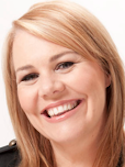 Natalie Locke Natalie Locke |
Your radio audience is the great unknown. You might meet punters in the street, but you don't know how those individuals are responding to anything you're saying at any given time. If you say something they don't like, they can just change the station. They might come back, they might not. So, obviously your content starts to reflect that. You try not to say anything too controversial, or if you do, you hope that your colleagues will be the counterpoint to give the audience a balanced view. |
 Stav Davidson Stav Davidson |
It took me a while to trust my ability to make people laugh without actually being able to hear them. Now I work on making the people in the studio laugh, or failing that, making myself laugh and trusting in that. |
For people who have spent most of their lives in radio and television studios and offices, the comparative ‘sterility’ of the environment may be completely invisible. When things have always been a certain way, you’re not even aware that your perception is that ‘that’s just how it is’. In fact many of these people find radio stations and studios an incredibly exciting and electric environment.
But for someone used to the freedom, intensity, and instant feedback of life under bright stage-lights, a studio can … feel … like … tumble … weeds …
 Simon Kennedy Simon Kennedy |
On stage when you hit a punchline, the reward is the laughter. On radio the girls at accounts payable tell you that thing you did about Rihanna was funny … two hours later. It's nice, but not quite the same euphoric feeling. |
 Mikey Robins Mikey Robins |
(In stand-up) it’s just you. Just you, a microphone, and what's going through your head. You know (when) you are going well. Whereas in radio, you sit there in the studio, you try your best – (but) it takes a week of breakfast radio to get the same feedback as you get instantly in a live gig. |
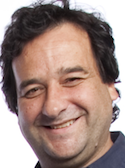 Mick Molloy Mick Molloy |
The main difference between the two is the immediacy of the feedback. With stand up you don't need to read the papers or wait for the ratings to come out to find out how you went. If something doesn't work, you know. Trust me, you know. |
 Natalie Locke Natalie Locke |
The studio environment is … a major point of difference. In the studio, you're sitting around with a couple of your mates telling stories. You know them remarkably well, so you know what's going to make them laugh. It's easy to forget that there's a wider audience out there and you just sort of hope that they're finding you as funny as your co-hosts do. Stand-up is obviously far less forgiving. Your audience has paid to be there and they rightfully expect you to be funny. And you can figure out pretty quickly if they think you are funny or not. There is nothing quite so crushing as a silent audience, but then, there's nothing quite so intoxicating as hearing your audience laughing uproariously. With a radio show, you don't get those highs or lows. You just do your thing and hope that everyone likes it. |
All of which leads to the question, “if that’s the case, then how should I modify my approach?”
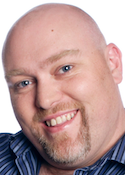 Adam Richard Adam Richard |
The best advice I ever got on doing radio was from Wil Anderson. He once told me to imagine I was only talking to the people in the room, and one other person who I couldn’t see. That’s the audience. You’re not playing to a 1500 seat theatre, you’re talking to somebody in their car stuck in traffic. Your job isn’t to make people slap their thighs with laughter, it’s to be good company. |
.jpg) Tom Ballard Tom Ballard |
I think the relationship between the audience member and the stand-up, and the relationship between the listener and the radio presenter, are vastly different. You build a presenter/listener relationship slowly over time, to the point where your comedy is really based around your overall personality as opposed to the strength of individual jokes. |
 Dave Thornton Dave Thornton |
A full time radio gig is every weekday, so you have to pace yourself for the long haul. If something doesn't work, fix it tomorrow. Work hard but understand you'll get another crack at it. Unless your show get's axed which is pretty rare in FM Radio. |
Finally, even if you were to perform your radio show to a live audience, the reaction might be fundamentally different to that of a stand-up comedy audience …
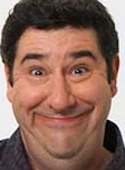 Tim Smith |
Radio allows you to intimately connect to your audience as they live their lives. Stand up has an onsite audience who are not there to dig up a beach to win a car. |
Tomorrow in 'The Brutal Truth' on Radio Today
Ratings – and other forms of Extreme Heckling
“With radio you also get heckled, but it comes every 6 weeks or so in the shape of ratings.
A drop in ratings is the equivalent to about a million people saying all at once,
‘Get off, you're not funny’”
“Strap yourself in for a lot of compromise and pseudo analysis.
Everyone knows why ratings go up …
… but only after it happens”
“In radio, a man with tight jeans, cowboy boots and a pony tail
tells you whether or not you’re funny
based on the opinions of a focus group that he spoke to in the early 90’s”
“Who is our audience? What makes them tick?
Stand-up comics have the best insight … a stand-up audience IS the radio audience.
It's safe to say this poof has nil in common with Trish, out on her hen’s night,
with her twenty mates, getting blind through a straw shaped like a dick.
But having performed to a million Trish's over the years, I have a good idea what she's about.
I know her very well and I have a real respect for her.
Thank you stand-up! I know who I'm dealing with daily, break to break”
|
|
Brad March is a former CEO of the Austereo Network and is Managing Director of Marchmedia. |   |
| Sarah Levett is a successful standup comedian, writer, MC, co-host of the New FM Breakfast Show. | ||
| Scott Muller is Director of MBOS Consulting Group, a media management and consulting firm. Click here to contact him. |  |
Who They Are (our stellar panel of experts):
Craig Annis – comedian and host of Star 104.5 breakfast show on Central Coast
 Robin Bailey – breakfast host of 97.3fm Brisbane
Robin Bailey – breakfast host of 97.3fm Brisbane
 Tom Ballard – comedian and host of triple j breakfast
Tom Ballard – comedian and host of triple j breakfast
 Tim Blackwell – host of Nova’s national drive show
Tim Blackwell – host of Nova’s national drive show
 Ciel – comedian and on-air personality, previously at Sea FM Central Coast
Ciel – comedian and on-air personality, previously at Sea FM Central Coast
 Joel Creasey – comedian and regularly appears on 92.9 Perth + other stations across Australia
Joel Creasey – comedian and regularly appears on 92.9 Perth + other stations across Australia
 Stav Davidson – comedian and host of B105 breakfast
Stav Davidson – comedian and host of B105 breakfast
 Lisa Fernandez – host of 92.9 breakfast in Perth
Lisa Fernandez – host of 92.9 breakfast in Perth
 Tom Gleeson – comedian and previous host of Mix 101.1 breakfast
Tom Gleeson – comedian and previous host of Mix 101.1 breakfast
 Wendy Harmer – comedian, ex-host of 2Day FM Morning Crew, now Editor in Chief of The Hoopla
Wendy Harmer – comedian, ex-host of 2Day FM Morning Crew, now Editor in Chief of The Hoopla
 Paul Hogan – comedian and host of 92.9 breakfast in Perth
Paul Hogan – comedian and host of 92.9 breakfast in Perth
 Amanda Keller – hosted Triple M Syd bfst with Andrew Denton, now on WSFM with Jonesy
Amanda Keller – hosted Triple M Syd bfst with Andrew Denton, now on WSFM with Jonesy
 Simon Kennedy – comedian and former host of weekend breakfast on Nova 96.9
Simon Kennedy – comedian and former host of weekend breakfast on Nova 96.9
 Lehmo – comedian, TV personality and host of breakfast on Gold FM in Melbourne
Lehmo – comedian, TV personality and host of breakfast on Gold FM in Melbourne
 Tommy Little – comedian and weekend breakfast host on Nova 100
Tommy Little – comedian and weekend breakfast host on Nova 100
 Natalie Locke – host of Nova 937 breakfast in Perth and former stand-up comedian
Natalie Locke – host of Nova 937 breakfast in Perth and former stand-up comedian
 Tony Martin – comedian, famous for Martin / Molloy, Get This, and the D-Generation. Currently a writer/director of ABC's Upper Middle Bogan
Tony Martin – comedian, famous for Martin / Molloy, Get This, and the D-Generation. Currently a writer/director of ABC's Upper Middle Bogan
 Mick Molloy – comedian, famous for Martin / Molloy, the D-Generation, and currently hosts breakfast on Triple M Melbourne
Mick Molloy – comedian, famous for Martin / Molloy, the D-Generation, and currently hosts breakfast on Triple M Melbourne
 James O’Loghlin – comedian, TV personality and ABC radio host
James O’Loghlin – comedian, TV personality and ABC radio host
 Dave O’Neil – comedian and founding member of the Nova 100 breakfast show
Dave O’Neil – comedian and founding member of the Nova 100 breakfast show
 Steve Philp – comedian and former host of weekend breakfast on Nova 96.9
Steve Philp – comedian and former host of weekend breakfast on Nova 96.9
 Adam Richard – comedian who has worked at triple j and for the Today network
Adam Richard – comedian who has worked at triple j and for the Today network
 Mikey Robins – comedian who has worked on breakfast at triple j and Triple M Sydney
Mikey Robins – comedian who has worked on breakfast at triple j and Triple M Sydney
 Tim 'Rosso' Ross – comedian and host of Mix drive in Sydney and Melbourne
Tim 'Rosso' Ross – comedian and host of Mix drive in Sydney and Melbourne
 Jamie Row – comedian and host of Mix 101.1 breakfast with Chrissie & Jane
Jamie Row – comedian and host of Mix 101.1 breakfast with Chrissie & Jane
 Akmal Saleh – comedian and former host of Nova national drive show
Akmal Saleh – comedian and former host of Nova national drive show
 Julian Schiller – comedy writer and host of Merrick & The Highway Patrol
Julian Schiller – comedy writer and host of Merrick & The Highway Patrol
 Marty Sheargold – comedian and host of Nova’s national drive show
Marty Sheargold – comedian and host of Nova’s national drive show
 Tim Smith – worked on The Richard Stubbs Breakfast Show, Timbo & Bedder’s, and on Mix 101.1
Tim Smith – worked on The Richard Stubbs Breakfast Show, Timbo & Bedder’s, and on Mix 101.1
 Jo Stanley – host of breakfast on Fox FM Melbourne
Jo Stanley – host of breakfast on Fox FM Melbourne
 Chrissie Swan – host of Mix 101.1 breakfast in Melbourne
Chrissie Swan – host of Mix 101.1 breakfast in Melbourne
 Dave Thornton – comedian, host of Mamamia Today and current weekend show with Sophie Monk
Dave Thornton – comedian, host of Mamamia Today and current weekend show with Sophie Monk
 Matt Tilley – host of breakfast on Fox FM Melbourne
Matt Tilley – host of breakfast on Fox FM Melbourne
%2072px.jpg)
